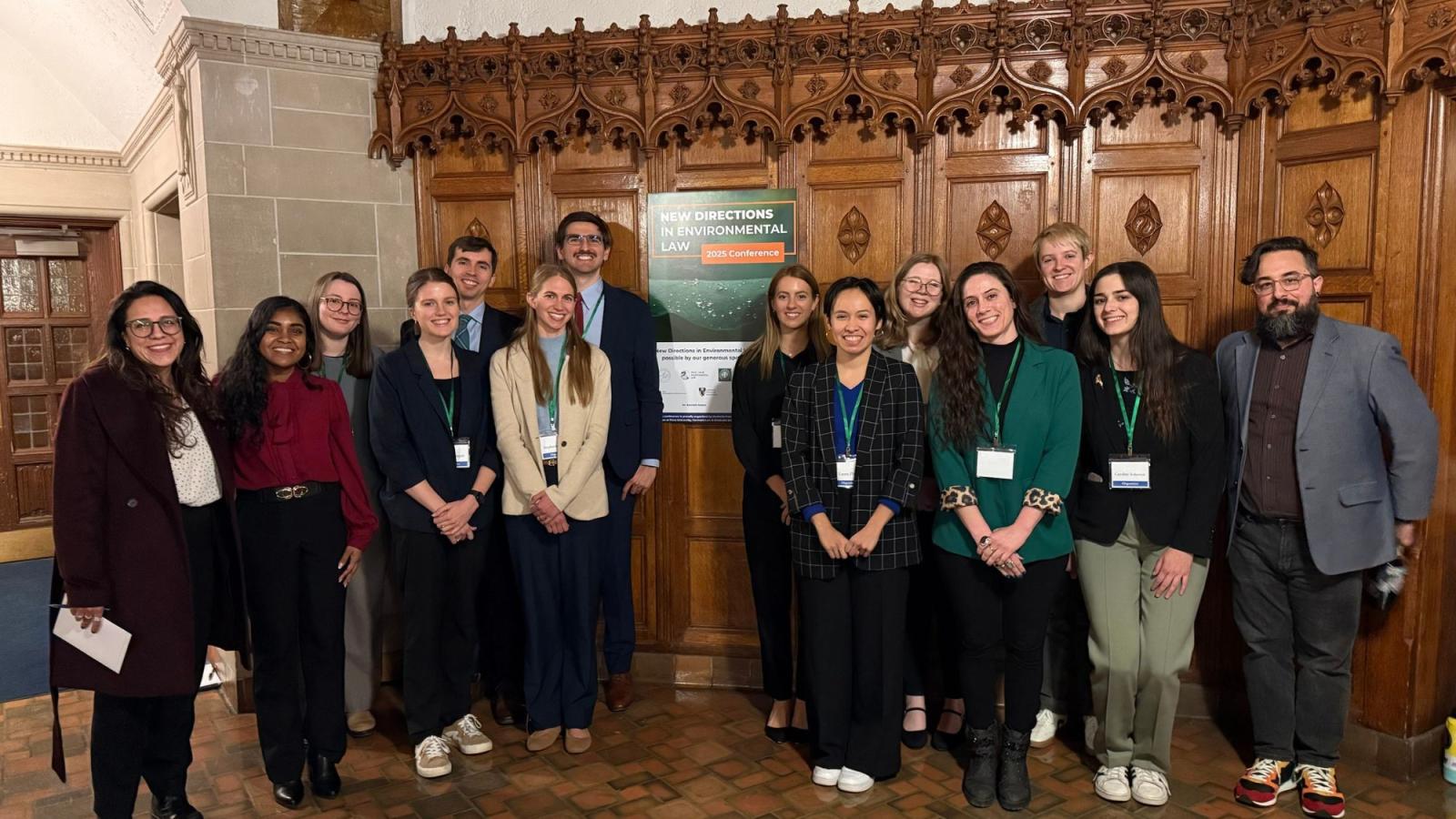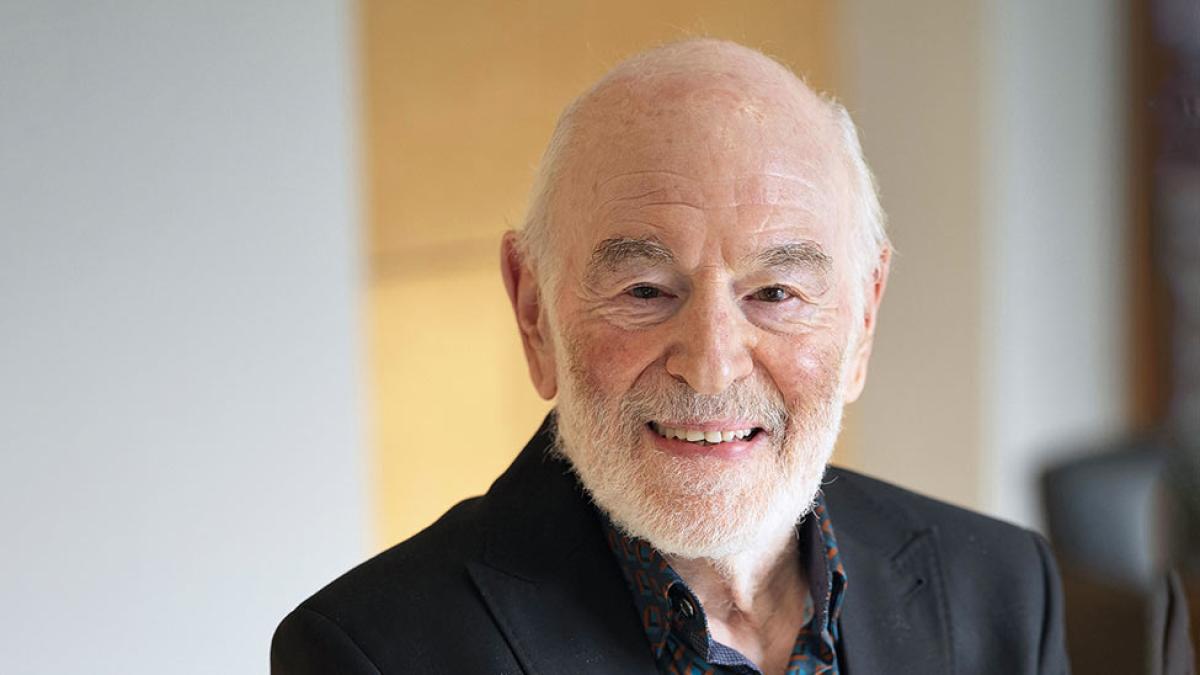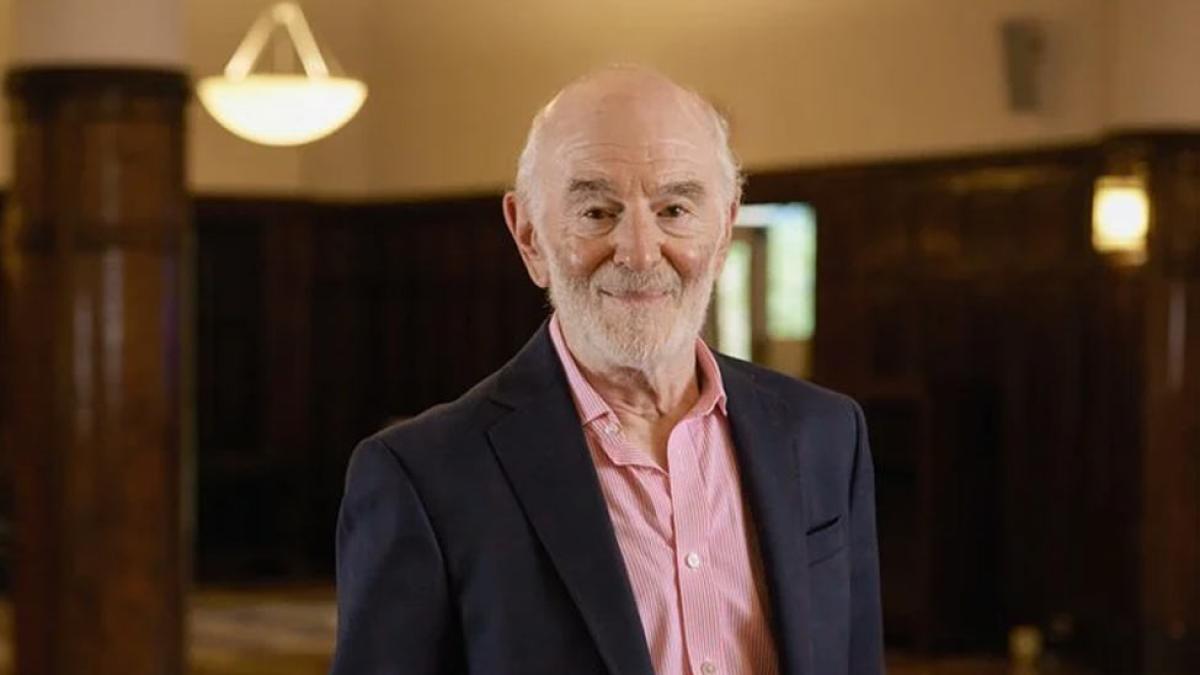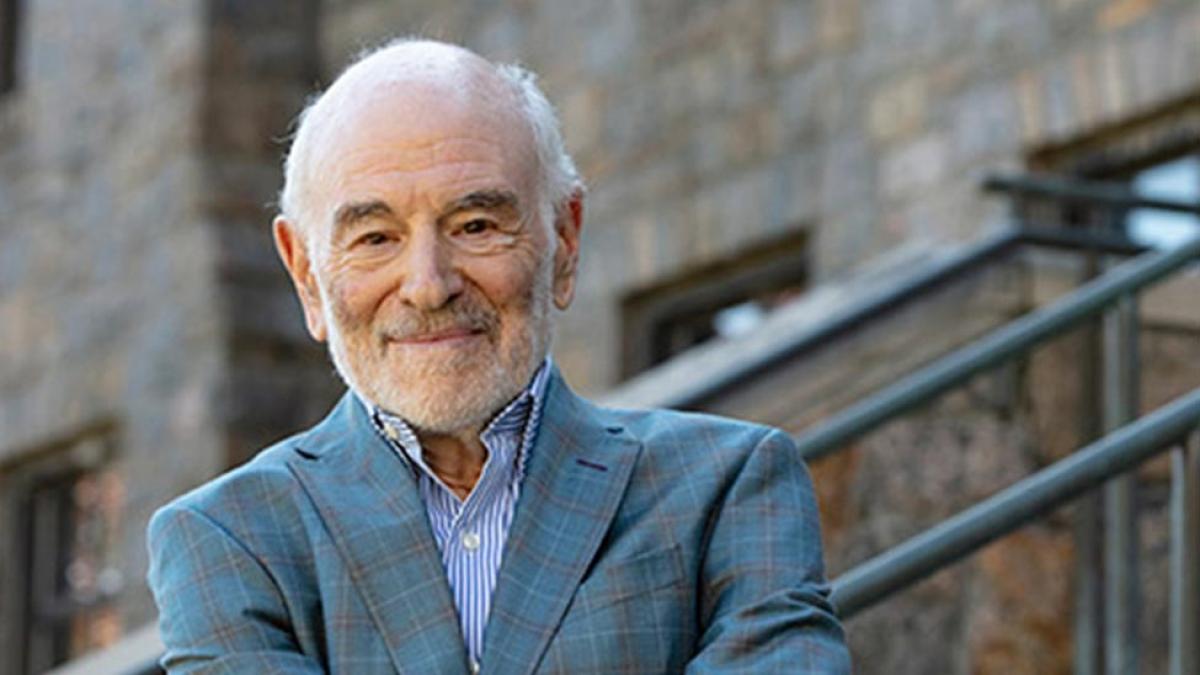Pace Haub Law Professor Bennett Gershman pens an op-ed in amNewYork responding to a historic decision by the New York Court of Appeals that, in one case, allowed a criminal conviction by a jury of 11 after a defendant was found to have tampered with a juror. Professor Gershman explains the court’s reasoning and the broader implications for jury practices in New York’s justice system.
Haub Law Co-Hosts Prestigious New Directions in Environmental Law Conference at Yale

The Elisabeth Haub School of Law at Pace University proudly co-hosted the New Directions in Environmental Law Conference (NDEL) held at Yale Law School in New Haven, CT on February 15, 2025. This year's conference analyzed changes and emerging issues in environmental law in a collaborative atmosphere. Organized by students from Haub Law, Yale Law School, Yale School of the Environment, and Vermont Law & Graduate School, the event featured insightful discussions on pressing environmental issues.
Since its inception in 2011, students have organized the NDEL with the goal of examining changes in and novel approaches to Environmental Law. While Haub Law has played an active role in the event since the beginning, in 2021 the School became an official co-host of the event, with a Haub Law student serving as a conference co-chair each year since. This year, Haub Law faculty and students played key roles building up to and during the NDEL Conference – organizing, moderating, presenting, transcribing, and volunteering. As home to the #1 ranked environmental law program, Haub Law remains committed to driving the future of environmental law and policy, and its role in co-hosting NDEL 2025 highlights its position as a leader in environmental legal education.
Some of the key contributions of Haub Law to the 2025 NDEL Conference include several faculty, including Professors Nicholas Robinson, Camila Bustos, and Josh Galperin, serving as speakers as well as Haub Law students, Michael Grant and Tamika Thomas, presenting their new research during the Conference, and Haub Law student Frances Gothard serving as the 2025 NDEL Conference Co-Chair. Additionally, Professors Galperin and Bustos serve as the Faculty Advisors for the Conference with many Haub Law students leading a planning committee with students from other collaborating law schools in the months before and during the conference, including Rita Flanagan, Alysia LeComte, Julie Frey, Ryan York, and Eli Calhoun. Also serving an integral role were seven Haub Law students who served as student reporters for the keynote speaker and panels, the content of which will be published in Pace Environmental Law Review’s GreenLaw Blog.
“For nearly 15 years, NDEL has been a preeminent student-run conference on environmental law and the largest such conference in the Eastern United States,” said Haub Law Professor and NDEL Conference Co-Advisor, Josh Galperin. “The collaborative and interdisciplinary approach that it takes to environmental law has made it a success, reflecting the values of the Haub Law environmental program and the many other participant institutions. But the real highlight is the students who work incredibly hard for many months to make this conference a reality. They aren’t just generating knowledge, they are building professional networks that are having ripple effects on environmental law and policy across the world.” Currently, in addition to his role as an Associate Professor of Law at Haub Law, Professor Galperin is the director of the joint degree program between Haub Law and Yale’s School of the Environment and a Visiting Professor of Law at Yale Law School where he teaches Environmental Law. Professor Galperin has been involved with Yale for nearly two decades, first a student, then as a lecturer, and also as the associate director of the Yale Center for Environmental Law and Policy and the director of the Goldman Sonnenfeldt Environmental Protection Clinic at Yale, both organizations are named sponsors of this year’s NDEL Conference.
This year’s keynote speaker was Ali Zaidi, Former White House National Climate Advisor, Assistant to the President of the United States, and Head of White House Climate Policy Office. The full-day conference also featured diverse panels and lectures, bringing together renowned experts in environmental law, policy, and governance. Discussions covered a wide range of timely and complex issues, including:
- New Directions from a Hostile White House: What Does a Second Trump Administration Mean for Environmental Law?
- Roots and Resistance: New directions in Indigenous Rights and Environmental Justice
- New Directions in the Law and Policy of Climate Migration
- New Directions in Biodiversity Law: Challenges and Opportunities
- Is Traditional Environmental Law Really a Barrier to Achieving U.S. Climate Goals? New Directions in the Permitting Debate
- New Directions in Ocean Law: International Ocean Governance
The conference concluded with a networking reception, providing attendees with the opportunity to connect with leading scholars, practitioners, and fellow students passionate about shaping the future of environmental law.
“Through its innovative panels, NDEL stays true to its name by covering emerging or "new directions" in the field, which means the conference is constantly pushing the boundaries of the field beyond "traditional" environmental law,” said Haub Law Professor and NDEL Conference Co-Advisor, Camila Bustos. “In a time when environmental law is in flux, students are taking a leadership role in fostering important conversations about where we have been and how to move forward.” Notably, while she was a law student at Yale Law School, Professor Bustos was a student organizer of the conference.
In a time when environmental law is in flux, students are taking a leadership role in fostering important conversations about where we have been and how to move forward.
“It was an absolute honor to serve as co-chair alongside [Yale Law student] Stephanie Prufer and collaborate with our incredible planning team to bring the 2025 New Directions in Environmental Law conference to life,” said 2025 NDEL Conference co-chair, Haub Law student Frances Gothard. “This annual, student-organized event continues to be a space where people from around the world—who are passionate about environmental issues—can come together to share their perspectives and insights. This year, we hosted six panels, welcomed 27 speakers, and had 320 registered attendees from 14 countries. We provided a space for critical and timely conversations to happen. At the same time, we also provided students with the opportunity to connect with fellow law students, network with professors and practitioners, present their research, and be published through PELR’s GreenLaw Blog. Overall, it was a tremendous success!”
In closing remarks at the conference, Professor Galperin emphasized the dedication and leadership of the students who made the event possible and provided insightful and timely comments on the current state of environmental law, noting the continuous importance of NDEL, but especially in times when environmental law is “in flux.” “NDEL is an institution from which leaders emerge,” remarked Professor Galperin. “What we have learned from almost 15 years of this conference is that the paths forward aren’t always strictly in the legal doctrine. They involve action, persuasion, imagination, collaboration, and careful articulation of shared values. And those are the democratic values that will lead us in the new directions we need now more than ever. And those are the directions that conferences like NDEL will guide us towards.”
A collaborative effort across institutions, in addition to Haub Law, the 2025 NDEL conference was also sponsored by Yale Law School, Yale School of the Environment, Goldman Sonnenfeldt Environmental Protection Clinic, Yale Center for Environmental Law & Policy, Haub Environmental Law Program, Yale Graduate & Professional Student Senate, American Bar Association Section for Environment, Energy, & Resources, Law Students for Climate Accountability, and Yale Environmental Law Association.


